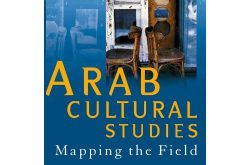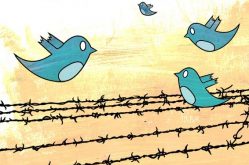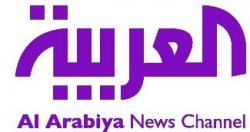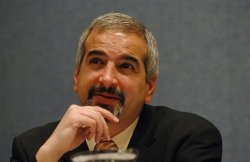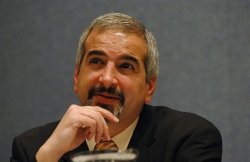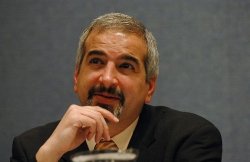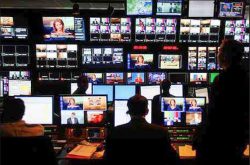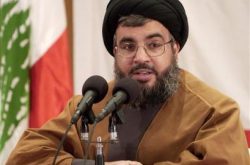Ramy Aly reviews and critiques this volume of articles edited by Tariq Sabry, calling it the most coherent attempt yet to “create a reflexive disciplinary self-consciousness” for the nascent field of Arab cultural studies. The book’s strength, he writes, lies in its “unapologetic diagnosis of the weaknesses” of current Arab media, communication and literary studies and its proposals for a way out of this disciplinary impasse.
Read More »Why the Arab World Needs Community Radio
Daoud Kuttab explores the resistance to community radio in the Arab world despite the opening up of media sectors following the Arab uprisings. He calls on the region’s newly elected leaders to welcome the developmental potential of community-based radio and to create the necessary regulatory framework for radio broadcasting.
Read More »Twitter and Tyrants: New Media and its Effects on Sovereignty in the Middle East
Reviewing the role of new media in the Arab uprisings, Wiebke Lamer considers both its potential and its limitations in undermining authoritarian regimes. She concludes that over the long term, new media’s greatest impact may be in strengthening civil society and facilitating non-state actors.
Read More »Western Reporting in the Middle East: The Dilemma of Local Arab Reportersd
Salah Al-Nasrawi reflects on the hiring practices and work conditions of native Arab reporters employed by international media organizations with offices in the Middle East. He exposes an unregulated and often inequitable environment that stifles the development of local Arab journalism and he calls for a public debate on the issue.
Read More »Job Satisfaction and Editorial Freedom at Al-Arabiya: Finding the Balance while Covering Volatile Middle East News
In the first survey of its kind, Mohammed el-Nawawy and Catherine Strong study job satisfaction among journalists working for Al-Arabiya TV. They explore how the channel’s Saudi ownership and coverage of the Arab uprisings shape perceptions of editorial freedom, job security and job satisfaction, pointing to a new understanding of journalism values among news workers at pan-Arab satellite channels.
Read More »Article
Arab Media & Society editorial board members remember the life and career of journalist Anthony Shadid
The Daily Star editor-at-large Rami Khouri writes that Shadid’s gift was the blending of his craft and his conscience, his profession and his person. CSIS Middle East Program Director Jon Alterman traces the career of a friend whose life and reporting embraced ambiguity and complexity.
Remembering Anthony Shadid’s Craft and Conscience
Issue 15, spring 2012 https://doi.org/10.70090/RK12ASCC The many deserved accolades and tributes to the late New York Times correspondent Anthony Shadid after his death in February were moving testaments to his life and work.[1] It was hard to count the many ways in which his friends and colleagues—and thousands of readers …
Read More »Remembering Anthony Shadid
I met him before he was Anthony Shadid. In the summer of 1991, he was just a skinny kid from the University of Wisconsin with a black mustache and an easy smile. We were studying Arabic together in Cairo. He was a third-generation Lebanese-American who had learned Arabic from scratch …
Read More »Private Satellite Channels in Egypt: The Relationship between Ownership and Editorial Policy
Television producer Mohamed Nasser calls Egypt’s privately owned satellite channels a threat to the goals of the revolution and little better than their state-owned counterparts. He proposes a series of reforms, including legislation to separate ownership and management.
Read More »Repetition and Ideology in Nasrallah’s Political Speeches
El Mustapha Lahlali examines the ideological function of lexical repetition in two political speeches of Hizbollah leader Hassan Nasrallah, illustrating the ways that Nasrallah employs this rhetorical device to further his ideological agenda and political strategies.
Read More » Arab Media & Society The Arab Media Hub
Arab Media & Society The Arab Media Hub
